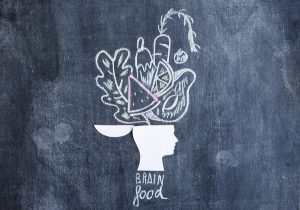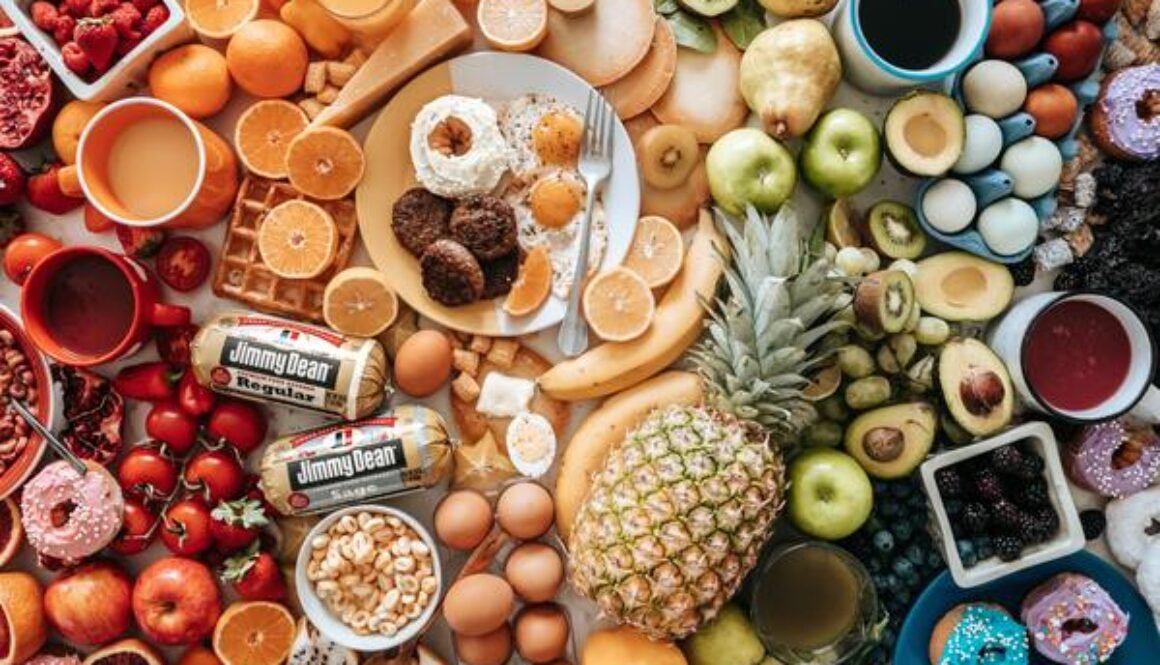Effects of Diet on Brain, Breakthrough Evidence
Introduction
Have you ever considered the effects of diet on your brain? And anything that affects the brain can affect the functioning of the human body.
The brain is the hub of all physiological activities and emotional sensations that are performed and experienced by a human. The brain manages this with the aid of various neurological functions and neurotransmitters, special chemical messengers that control and perform brain function.
Different types of neurotransmitters perform different functions. Consequently, anything that changes the levels of chemical messengers can affect you. One such thing that can have an effect is diet.
Effects of Diet on Brain Neurotransmitters
Diet and Serotonin
So, let’s start with a happy chemical, serotonin. Serotonin is an inhibitory neurotransmitter and it is involved in mood, behavior, blood clotting, memory, and circadian rhythms.1 Most importantly, it also plays a significant role in depression and anxiety.2
The precursor of serotonin is the amino acid tryptophan. So, we would expect that eating a protein-rich diet and so increasing our intake of tryptophan would greatly increase serotonin levels, right?
Well, it actually seems that this is not the case. The reason will be explained in a future blog post (stay tuned!), but what actually happens is that serotonin levels increase after a nice meal that is high in carbohydrates.2,3
Diet and Dopamine
Another happy chemical is dopamine which is both an excitatory and inhibitory neurotransmitter. It is important for movement coordination, blood flow, pain processing, sleep, stress response, behavior, learning, and memory. Dopamine is best known for being released during pleasurable activities.4

The amino acid L-Tyrosine plays a critical role in the production of dopamine. So, increasing the number of amino acids in the diet can also increase dopamine production.5 Correspondingly, when these amino acids are removed from the diet, the level of dopamine falls.6
Consequently, eating a protein-rich diet can increase dopamine levels. Furthermore, there is some evidences that dopamine signals in the brain is reduced when saturated fats are consumed in high amounts.7
However, dopamine release is much more complex than this because of its significant role in the reward pathway.8 We discussed this in a previous post: every time we eat that little piece of chocolate that we love so much, our brain is “flooded” by dopamine.
Of course, this is a big and very interesting topic and we will reveal more about it in future posts.
Diet and Acetylcholine
We are moving forward to acetylcholine. Acetylcholine is one excitatory neurotransmitter. In addition to its role in the autonomic nervous system, muscle movement, and in stimulating significant body function, it also play a role in learning and memory. 9,10
The latter is the reason why nootropics, which are supplements that increase acetylcholine levels, are a topic of so much interest.
Acetylcholine is formed of acetyl coenzyme A and choline with the help of the enzyme choline acetyltransferase.9 As a result, eating food that is rich in choline can increase the acetylcholine stores in the body, thus ensuring normal muscle function and improving learning and memory. Such a diet includes beef liver, egg, soybeans, fish, milk, quinoa, kidney beans, and others. The good news here is that choline is not a rare nutrient, and it is easy to incorporate it into your diet..11

However, there are dietary supplements such alpha-GPC and citicoline which can increase choline levels.12 Moreover, some dietary supplements, such as ginkgo Biloba, seem to slow acetylcholine breakdown and so potentially increase acetylcholine levels.13
Diet and GABA
The next neurotransmitter we will examine is GABA. Gamma-aminobutyric acid is a mood regulator. It is inhibitory in action, thus preventing the neurons from becoming overexcited.14 As a result, low levels of it can cause anxiety, irritability, and restlessness.
GABA itself is an amino acid, meaning protein-rich diets can increase its production by containing high levels of glutamate, its precursor amino acid.
Another way to increase GABA is by taking it directly from food and, specifically, foods like fish, shellfish, beans, lentils, tomatoes, seaweed, and berries.
Even though it is still unclear whether taking supplements increases GABA levels in the body, some food supplements have some effects on behavior.15
Diet and Epinephrine
Last, but not least, is the neurotransmitter epinephrine, which is also known as adrenaline. Epinephrine functions as both a hormone and a neurotransmitter.
Certainly, epinephrine is a neurotransmitter you don’t want to have at high levels most of the time. It is released under high-stress conditions and increases heart rate and provides energy to muscles.16
Epinephrine and norepinephrine are important, however, for keeping you focused and motivated. More importantly, it aids the brain in making rapid decisions in times of danger.
It seems that protein-rich diets decrease epinephrine levels. Correspondingly, sticking to a low-protein diet increases epinephrine levels.17 Moreover, high-calorie diets including lots of fats and carbohydrates increase epinephrine levels.18
You can experience some increase in epinephrine levels after a cup of coffee which will keep you more focused throughout the day.19
To Sum Up
So, what did we learn today? Diet and food habits have a strong effect on our brains since the levels of brain regulators are greatly affected by the food we consume.
Consequently, diet can influence our mood, behavior, energy, and much more. The truth is that these things are very complex, but this is just a simple introduction so we can dive into much more detail in the future. Until then, stay informed, find out our book recommendations, and remember – we are what we eat!
References
- Berger M, Gray JA, Roth BL. The expanded biology of serotonin.
- Hensler JG, Frazer A. Serotonin.
- Møller SE. Serotonin, Carbohydrates, and Atypical Depression.
- Schultz W. Multiple dopamine functions at different time courses.
- Colzato LS, de Haan AM, Hommel B. Food for creativity: tyrosine promotes deep thinking.
- Montgomery AJ, McTavish SFB, Cowen PJ, Grasby PM. Reduction of brain dopamine concentration with dietary tyrosine plus phenylalanine depletion.
- Cone JJ, Chartoff EH, Potter DN, Ebner SR, Roitman MF. Prolonged High Fat Diet Reduces Dopamine Reuptake without Altering DAT Gene Expression.
- Bello NT, Hajnal A. Dopamine and binge eating behaviors.
- Purves D, Augustine GJ, Fitzpatrick D, et al. editors. Acetylcholine.
- Hasselmo ME. The role of acetylcholine in learning and memory.
- National Institute of Health. Choline. Fact Sheet for Health Proffesionals.
- Parnetti L, Mignini F, Tomassoni D, Traini E, Amenta F. Cholinergic precursors in the treatment of cognitive impairment of vascular origin: Ineffective approaches or need for re-evaluation?
- Kaur S, Chhabra R, Nehru B. Ginkgo biloba extract attenuates hippocampal neuronal loss and cognitive dysfunction resulting from trimethyltin in mice.
- Allen MJ, Sabir S, Sharma S. GABA Receptor.
- Boonstra E, de Kleijn R, Colzato LS, Alkemade A, Forstmann BU, Nieuwenhuis S. Neurotransmitters as food supplements: the effects of GABA on brain and behavior.
- Dalal R, Grujic D. Epinephrine.
- Agharanya JC, Wurtman RJ. Effect of dietary proteins and carbohydrates on urinary and sympathoadrenal catecholamines.
- Ross A, Darling J, Parent M. Excess intake of fat and sugar potentiates epinephrine-induced hyperglycemia in male rats.
- Papadelis C, Kourtidou-Papadeli C, Vlachogiannis E, et al. Effects of mental workload and caffeine on catecholamines and blood pressure compared to performance variations.

